Welcome back to our monthly GPU pricing update. Unsurprisingly, the GPU market still kind of sucks, however, there's a silver lining this month: with some price adjustments for new GPUs, the situation has improved a little more compared to the previous month. We'll break all of that down in a moment.
The most significant development in the graphics card space in the past month was the introduction of two new AMD GPUs: the Radeon RX 7800 XT and RX 7700 XT. We hope you've read the full reviews of these products for our detailed insights. Essentially, these are two distinct cards. The Radeon 7800 XT, priced at $500, offers better value and some minor advantages over the RX 6800 XT. In contrast, the Radeon 7700 XT doesn't quite hit the mark for its price point, as it's too close to the 7800 XT.
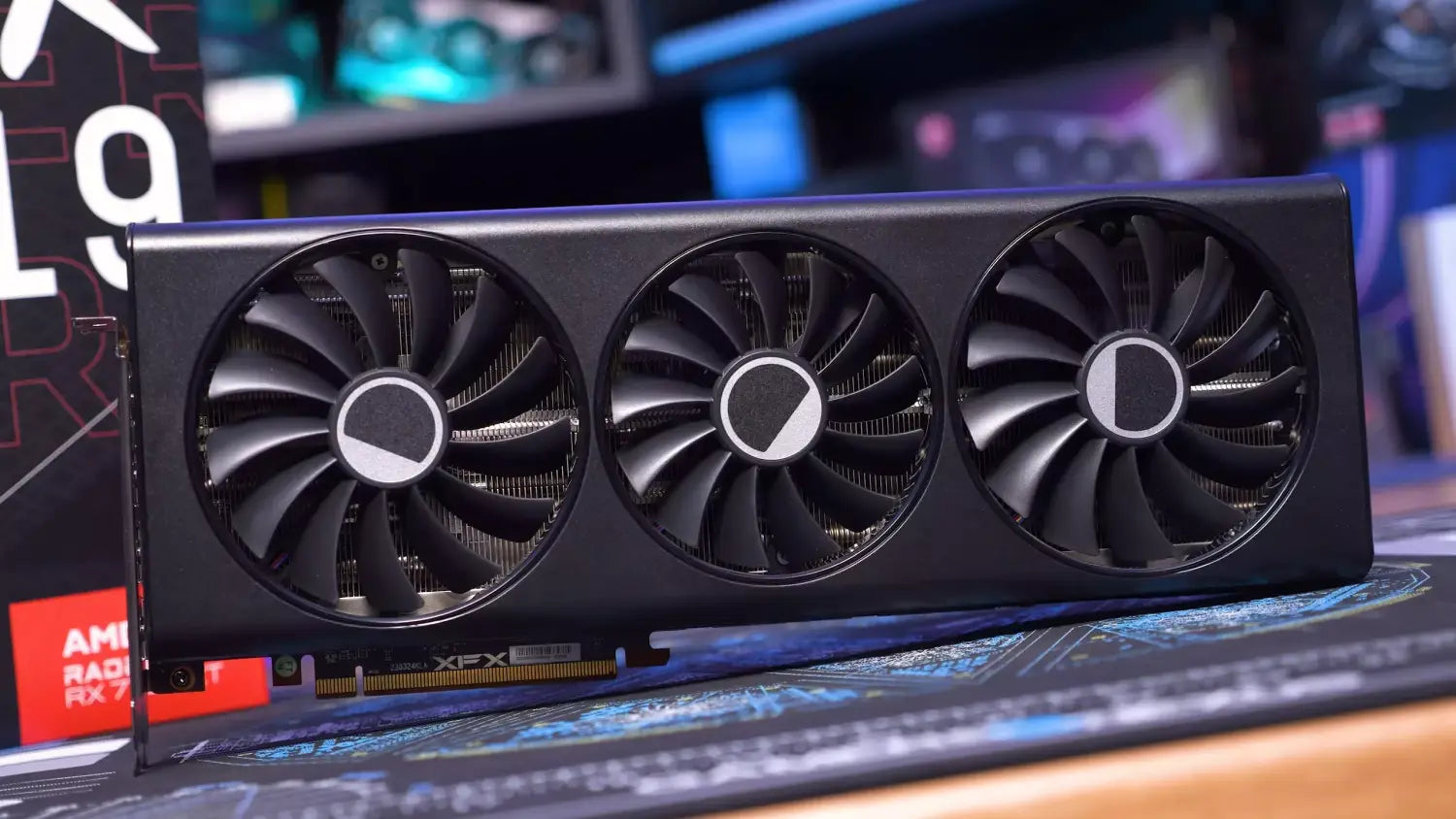
Consequently, the response from GPU enthusiasts largely aligns with our observations. From our sources, the Radeon 7800 XT is among the most sought-after graphics cards from this generation. While it hasn't set record-breaking sales, it's undeniably one of the more notable launches this year.
There was a strong initial demand, although not an outright sellout as we often witnessed half a decade ago. Especially for models priced around the MSRP, acquiring a $500 model, or its equivalent depending on regional pricing, might have posed challenges initially. Nevertheless, stock availability and pricing are gradually stabilizing.
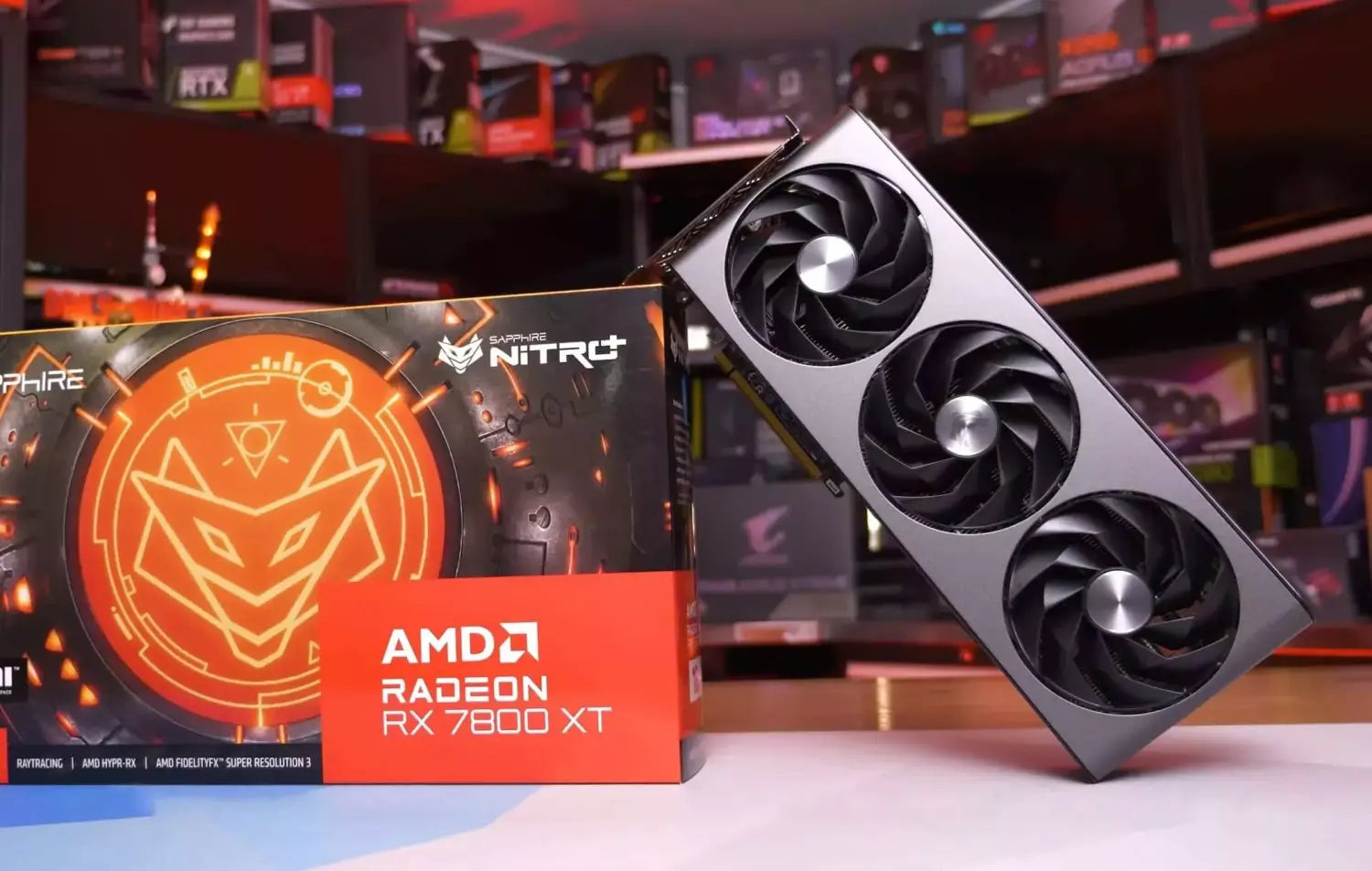
In stark contrast stands the Radeon 7700 XT, which hasn't seen as much enthusiasm. As highlighted in our reviews, its value proposition isn't compelling. Most customers would find it worthwhile to invest slightly more in the 7800 XT, which offers better value in terms of cost per performance.
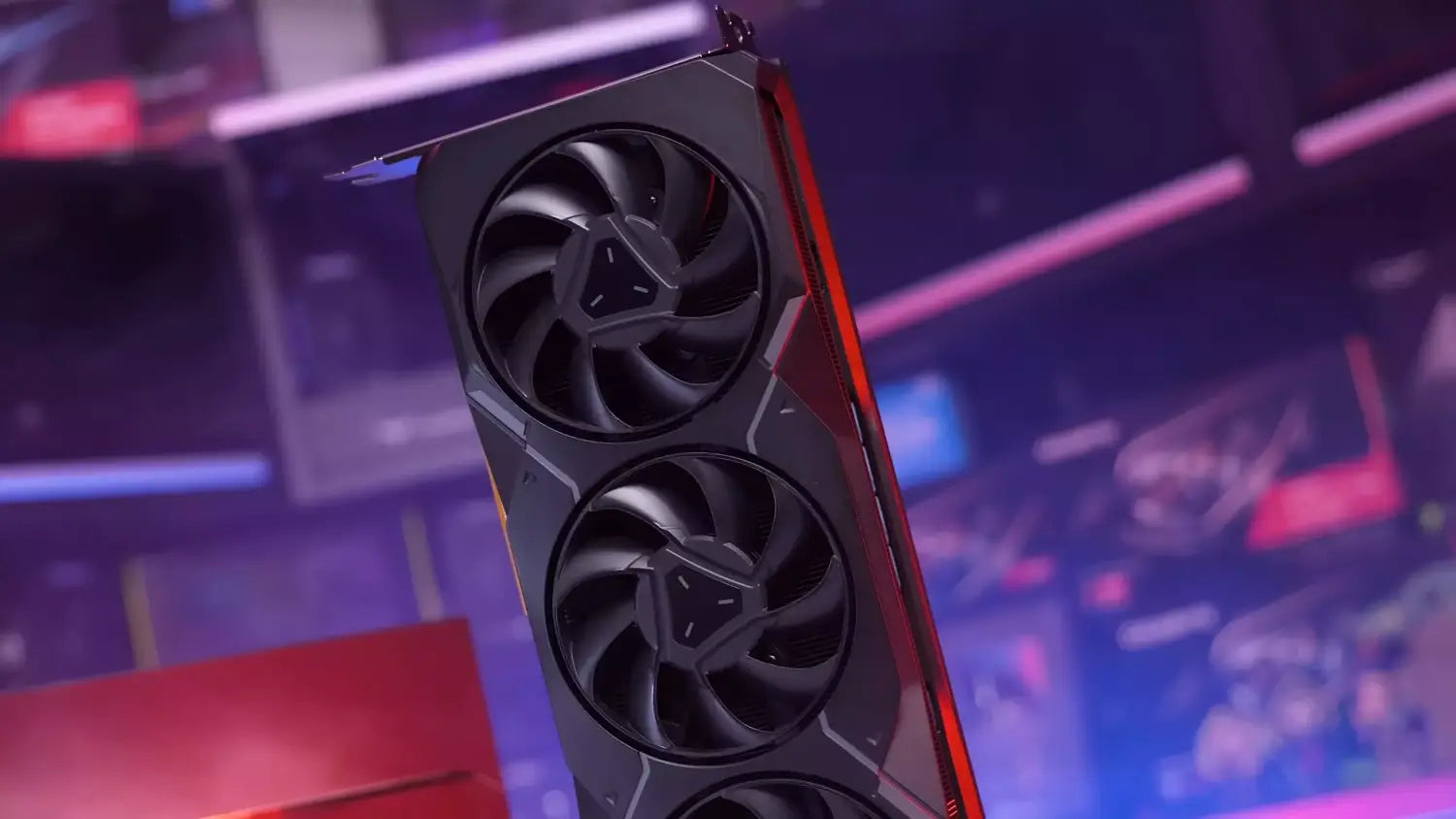
While we haven't noticed significant price changes for this model, we anticipate a situation similar to the Radeon 7900 XT. The $450 MSRP might soon become unviable, and will need to drop closer to $400 for it to have a place in the market. For perspective, the 7900 XT debuted with a hefty $900 tag, only to be adjusted to $800 or less within a few months.
We discussed in our recent Radeon 7800 XT vs. GeForce RTX 4070 comparison that the 7800 XT's regional pricing post-launch has been somewhat inconsistent. In the US, $500 models have mostly been available, but in countries like Australia, the 7800 XT's price point of 880 AUD (roughly equivalent to $520) represents a slight mark-up. However, in several other countries, we've noticed the pricing aligning closely with the $500 benchmark – the UK, France, and Germany are cases in point, particularly for the more affordable models.
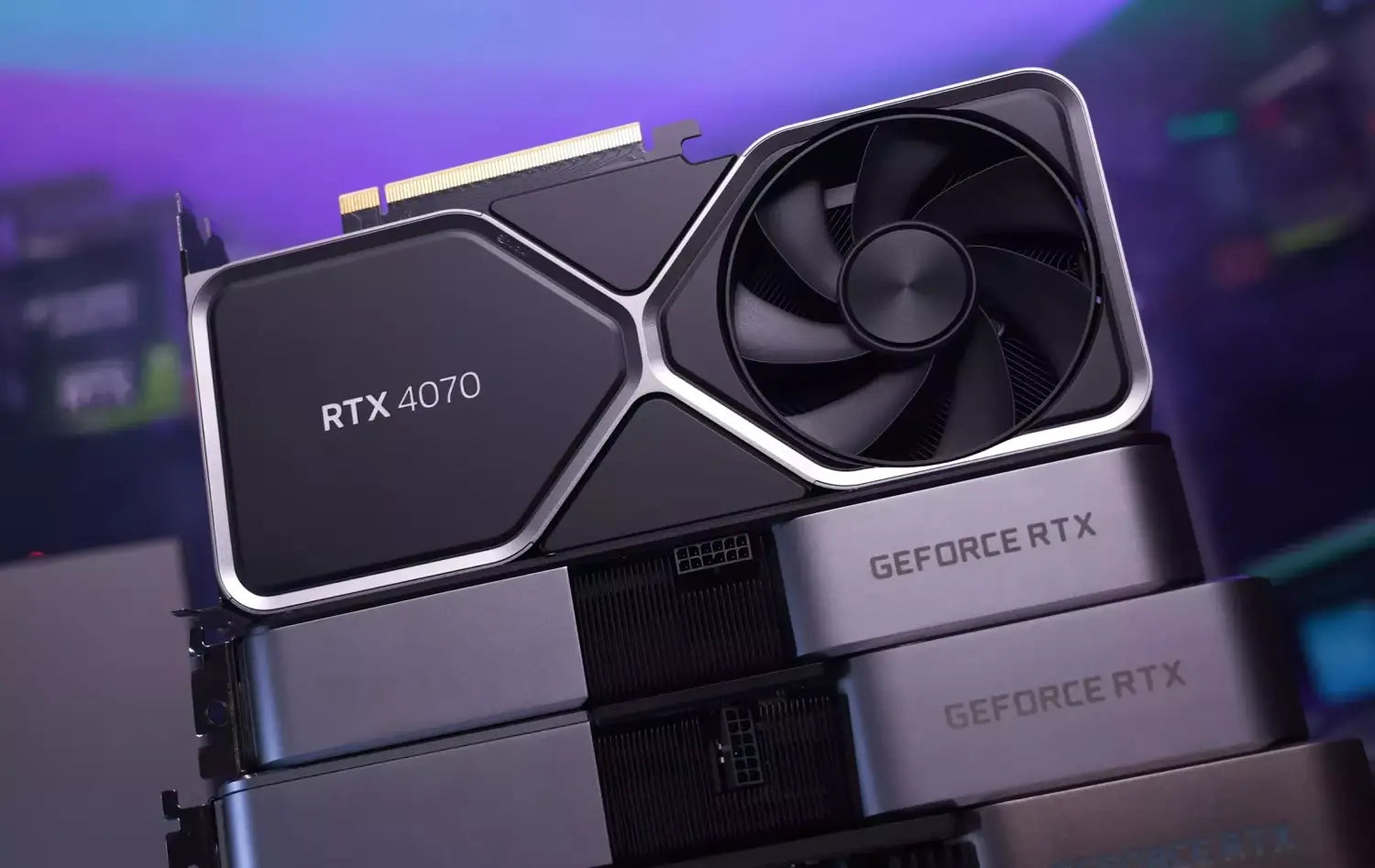
What has put the most pressure on the Radeon 7800 XT's value proposition is Nvidia's almost official price cut for the RTX 4070 down from $600 to $550. This isn't limited to a single model – multiple base model 4070s are now available at $550 from retailers like Newegg. Importantly, this revised pricing has been reflected in other regions as well, including Australia, the UK, and Germany – a consistency we haven't always observed when prices are cut in the US. It's certainly worth revisiting pricing in your locale, not only for the new 7800 XT but also for the RTX 4070.
This presents several interesting observations. First, it shows that Nvidia has a lot of room to promptly adjust prices in the face of genuine competition. The RTX 4070 was one of Nvidia's stronger current-gen releases, but the price was high relative to where a model with the 4070's performance should be positioned.
Just a few weeks after AMD began applying price pressure on the 4070 – with most reviews suggesting the 7800 XT is the better choice between the two – Nvidia effortlessly reduced prices. This might imply that Nvidia is realizing a sizable profit from each 4070 sold. We don't believe these cards are exorbitantly costly to manufacture, suggesting that Nvidia doesn't need to sell them at such a steep price. Moreover, Nvidia is actively tracking competitors and adjusting their offerings to appeal more to customers.
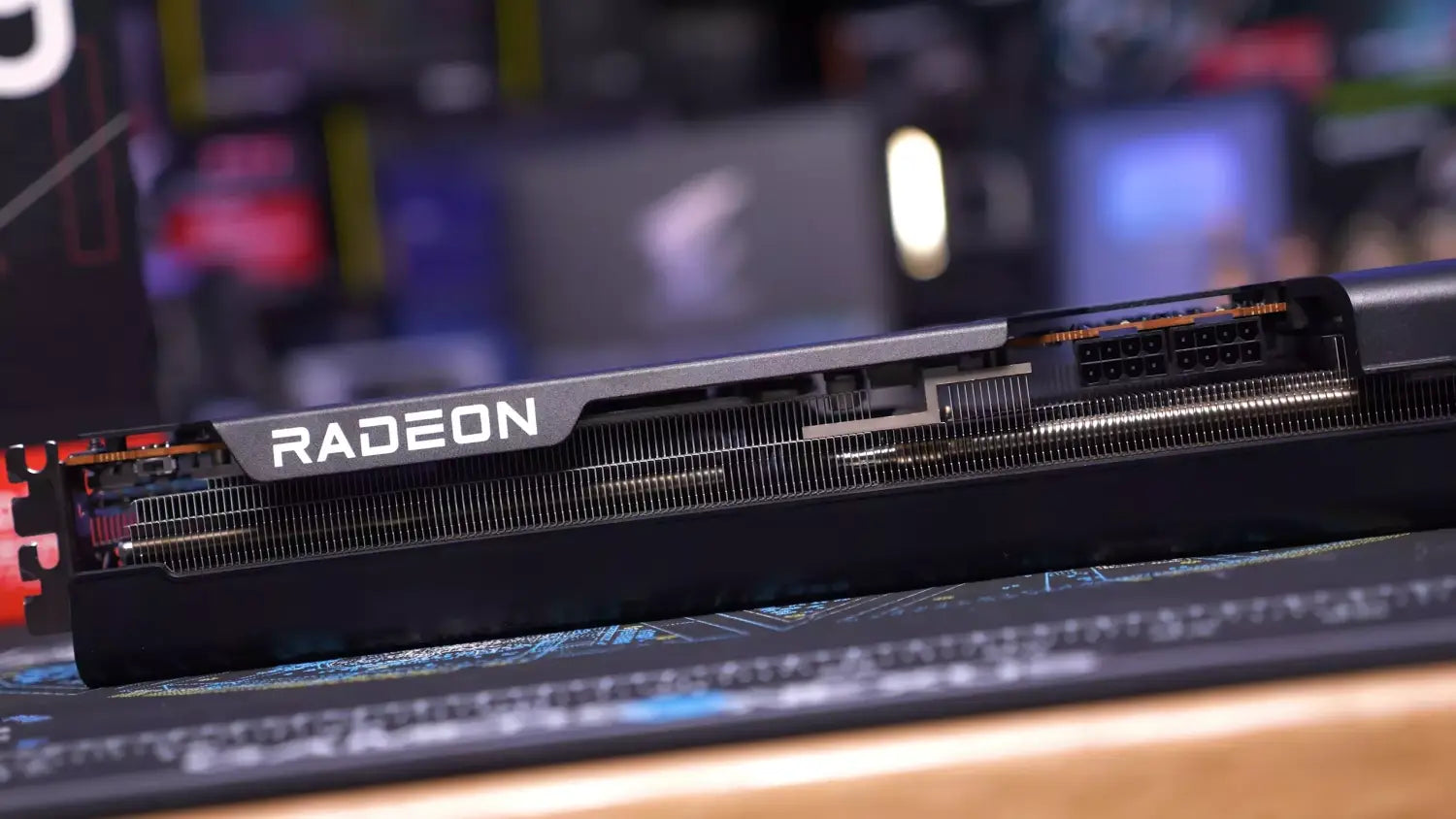
A second observation is that this price adjustment has largely killed the great value proposition of the Radeon 7800 XT and the reason why it was recommended in our review and others. The RTX 4070 shifts from being 20% pricier to only 10% more so. For the most part, the RTX 4070 remains the less performant product. In our 45-game benchmark, we found the 7800 XT to be roughly 8% faster on average for 4K rasterization and about 2% slower for 1440p ray tracing – with a general lead of about 5%. It's understandable that it would be a popular choice when the 4070 was 20% more costly.
However, with a slimmer 10% margin between the cards in many regions, the RTX 4070 has become a more compelling option. If you're intrigued by features like DLSS, including the better output quality of DLSS at resolutions like 1440p, the addition of Frame Generation support, or if you like to have better power efficiency, the RTX 4070 now has a stronger case for consideration. While the RTX 4070 is not the standout option, it's no longer the clearly inferior choice it was just a short while ago.
And this is what competition does to the market, and by that we mean actual competition, not AMD matching the price structure of Nvidia with new launches. The Radeon 7800 XT was a significant launch, providing better value than existing options, prompting Nvidia to react. Without this rivalry, we'd have overpriced GeForce models, unchanging offerings from Team Red, and less value for consumers. Therefore, rumors that AMD might not release high-end products for their upcoming RDNA 4 series are a tad disheartening.
New GPU Pricing: RTX 4000, Radeon 7000 and Arc
| MSRP | Lowest Price Jul | Lowest Price Aug | Lowest Price Sept | Current Price Inflation | Increase Aug to Sept | |
|---|---|---|---|---|---|---|
| GeForce RTX 4090 | $1,600 | $1,600 | $1,600 | $1,600 | 0% | 0% |
| GeForce RTX 4080 | $1,200 | $1,140 | $1,140 | $1,100 | -8% | 0% |
| GeForce RTX 4070 Ti | $800 | $800 | $800 | $800 | 0% | 0% |
| GeForce RTX 4070 | $600 | $600 | $600 | $550 | -8% | -8% |
| GeForce RTX 4060 Ti 16GB | $500 | $500 | $500 | $450 | -10% | -10% |
| GeForce RTX 4060 Ti 8GB | $400 | $400 | $390 | $380 | -5% | -3% |
| GeForce RTX 4060 | $400 | $300 | $290 | $280 | -7% | -3% |
| Average | -5% | -3% |
Assessing Nvidia's RTX 40 series and current pricing, we observe the influence of competition on several models. The GeForce RTX 4060 is now available for as low as $280, the RTX 4080 remains at $1,100, and there's some price fluctuation for the recently introduced RTX 4060 Ti. The 8GB version is available for $380, which isn't noteworthy, while the 16GB card has declined from an excessive $500 to $450. The only two Nvidia GPUs maintaining their original prices are the RTX 4090 and the RTX 4070 Ti.
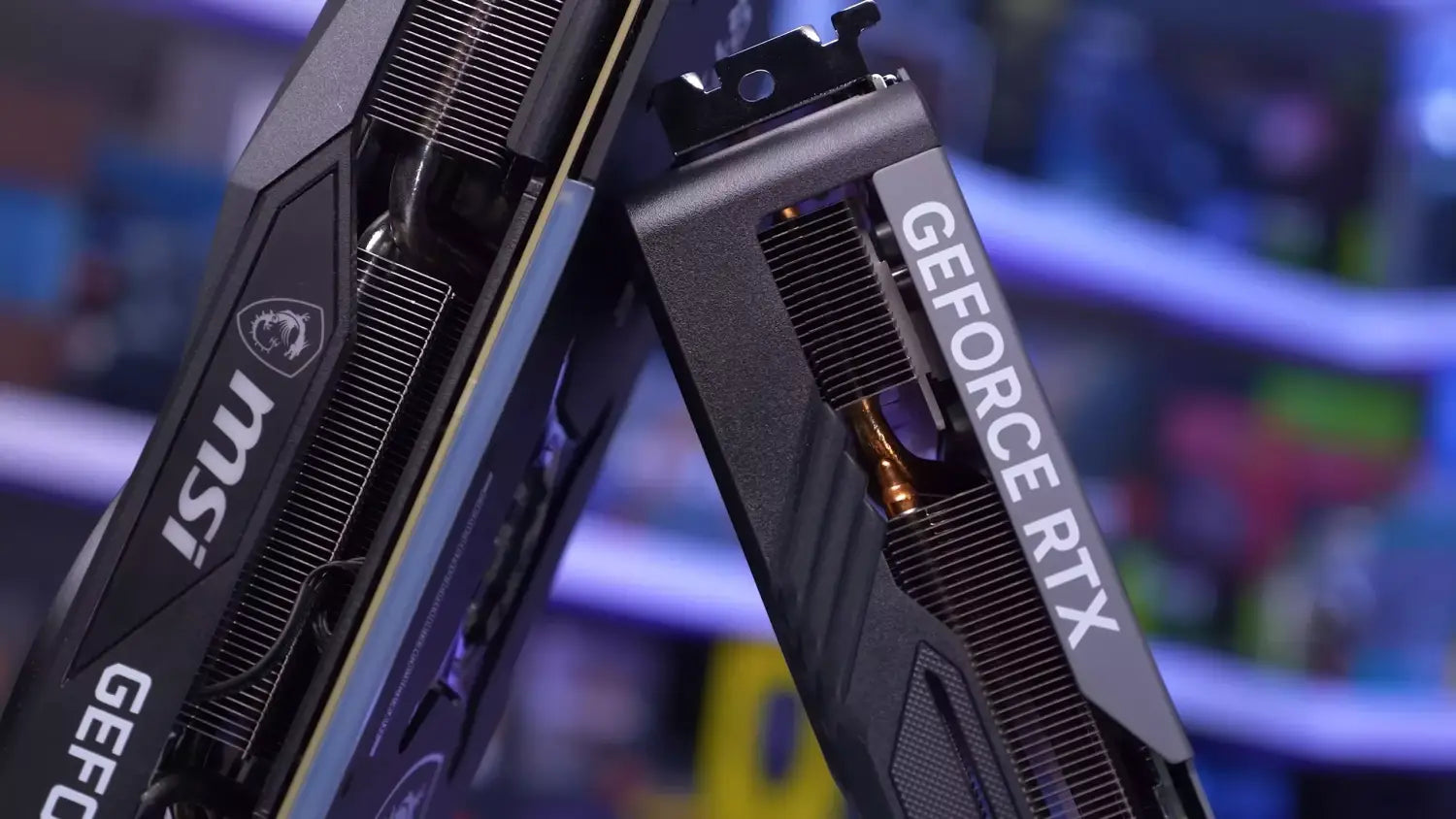
It's also been amusing to witness the RTX 4060 Ti 16GB drop to $450 after Nvidia claimed adding an extra 8GB of memory was a costly endeavor, justifying a $100 price hike for the 16GB version. As most suspected, this rationale lacked substance. Evidently, Nvidia didn't need to mark up the 16GB model; they simply desired a higher price point. When consumers balked at the inflated cost, Nvidia was compelled to adjust, particularly with AMD launching the faster Radeon 7700 XT at a similar price.
| MSRP | Lowest Price Jul | Lowest Price Aug | Lowest Price Sept | Current Price Inflation | Increase Aug to Sept | |
|---|---|---|---|---|---|---|
| Radeon RX 7900 XTX | $1,000 | $940 | $960 | $940 | -6% | -2% |
| Radeon RX 7900 XT | $900 | $750 | $750 | $790 | -12% | 5% |
| Radeon RX 7800 XT | $350 | $500 | 0% | |||
| Radeon RX 7700 XT | $320 | $450 | 0% | |||
| Radeon RX 7600 | $270 | $270 | $265 | $260 | -4% | -2% |
| Average | -4% | 0% |
Reviewing AMD's current generation reveals minimal variation. Both new GPUs debuted at their MSRP, with pricing for other models consistent with previous months. The Radeon 7900 XTX hovers around $950, the 7900 XT has been between $750 and $800 for the past half year, and the Radeon RX 7600 is $10 below its MSRP, which is nothing to get excited about.
| MSRP | Lowest Price Jul | Lowest Price Aug | Lowest Price Sept | Current Price Inflation | Increase Aug to Sept | |
|---|---|---|---|---|---|---|
| Intel Arc A770 16GB | $350 | $400 | $330 | $330 | -9% | -3% |
| Intel Arc A770 8GB | $320 | $280 | $270 | $270 | -16% | 0% |
| Intel Arc A750 | $290 | $240 | $230 | $230 | -21% | 0% |
| Intel Arc A380 | $140 | $120 | $120 | $120 | -14% | 0% |
| Average | -15% | -1% |
Intel's Arc series, comparable to AMD GPUs, hasn't seen significant price shifts since last month. Intel presents the most affordable new 16GB GPU on the market with the Arc A770 16GB at just $320, generally positioning their offerings at reasonable price points.
GeForce RTX 30 Series Pricing
| MSRP | Lowest Price Jul | Lowest Price Aug | Lowest Price Sept | Current Price Inflation | Increase Aug to Sept | |
|---|---|---|---|---|---|---|
| GeForce RTX 3090 Ti | $2,000 | No stock | No stock | No stock | n/a | |
| GeForce RTX 3090 | $1,500 | No stock | No stock | No stock | n/a | |
| GeForce RTX 3080 Ti | $1,200 | No stock | No stock | No stock | n/a | |
| GeForce RTX 3080 12GB | n/a | No stock | No stock | No stock | n/a | |
| GeForce RTX 3080 10GB | $700 | No stock | No stock | No stock | n/a | |
| GeForce RTX 3070 Ti | $600 | $460 | $450 | $450 | -25% | 0% |
| GeForce RTX 3070 | $500 | $440 | $380 | $370 | -26% | -3% |
| GeForce RTX 3060 Ti | $400 | $350 | $320 | $340 | -15% | 6% |
| GeForce RTX 3060 | $330 | $260 | $280 | $290 | -12% | 4% |
| GeForce RTX 3050 | $250 | $230 | $225 | $225 | -10% | 0% |
| Average | -18% | 1% |
If you're after a brand new previous generation GPU, it's clear that supply for some of these models is drying up. The GeForce RTX 3070 and 3070 Ti are becoming rare, and we anticipate they will soon be unobtainable (new). With that said, if you were specifically after a GeForce GPU, you wouldn't buy the RTX 3070 as the 8GB RTX 4060 Ti is basically the same price, it performs similarly, but gives you access to DLSS 3 and AV1 encoding, while being significantly more power efficient.
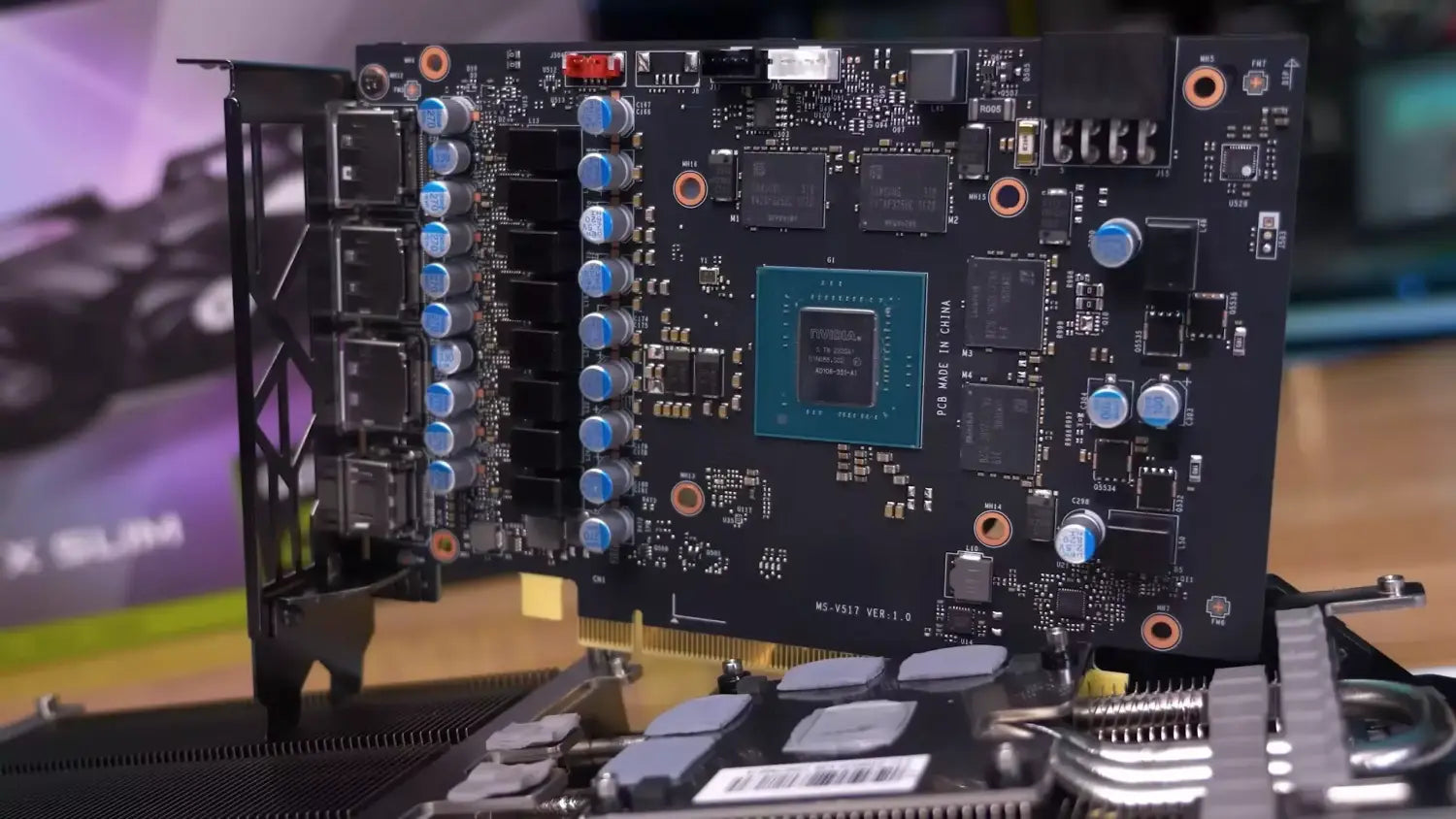
The RTX 3060 is also similarly priced to the RTX 4060, so you would likely opt for the newer Ada Lovelace model for similar reasons. The RTX 3050 at $225 is the most affordable Nvidia GPU. Its future replacement remains uncertain, but its current value is awful when compared to faster and less expensive Radeon models.
Radeon RX 6000 Series Pricing
| MSRP | Lowest Price Jul | Lowest Price Aug | Lowest Price Sept | Current Price Inflation | Price Increase Aug to Sept | |
|---|---|---|---|---|---|---|
| Radeon 6950 XT | $1,100 | $600 | $640 | $640 | -42% | 0% |
| Radeon 6900 XT | $1,000 | No stock | No stock | No stock | n/a | |
| Radeon 6800 XT | $650 | $520 | $520 | $490 | -25% | -6% |
| Radeon 6800 | $580 | $480 | $430 | $430 | -26% | 0% |
| Radeon 6750 XT | $550 | $360 | $350 | $330 | -40% | -6% |
| Radeon 6700 XT | $480 | $330 | $320 | $320 | -33% | 0% |
| Radeon 6650 XT | $400 | $240 | $235 | $235 | -41% | 0% |
| Radeon 6600 XT | $380 | $290 | $270 | $270 | -29% | 0% |
| Radeon 6600 | $330 | $180 | $200 | $200 | -39% | 0% |
| Radeon 6500 XT | $200 | $160 | $140 | $140 | -30% | 0% |
| Radeon 6400 | $160 | $140 | $130 | $130 | -16% | 4% |
| Average | -32% | -1% |
Speaking of older Radeon products, numerous RDNA 2 models remain on the market, leading AMD to essentially compete against themselves at multiple price brackets. The Radeon RX 6650 XT, priced at $235, is merely 5% slower than the RX 7600 but 10% cheaper, making it the clear choice for those seeking performance at this price point. The Radeon RX 6600 is also a notable deal at $200. There's a sufficient supply of these models, which might be causing concern for AMD, who would likely prefer customers to choose the more expensive Radeon RX 7600 without considering last-gen options.
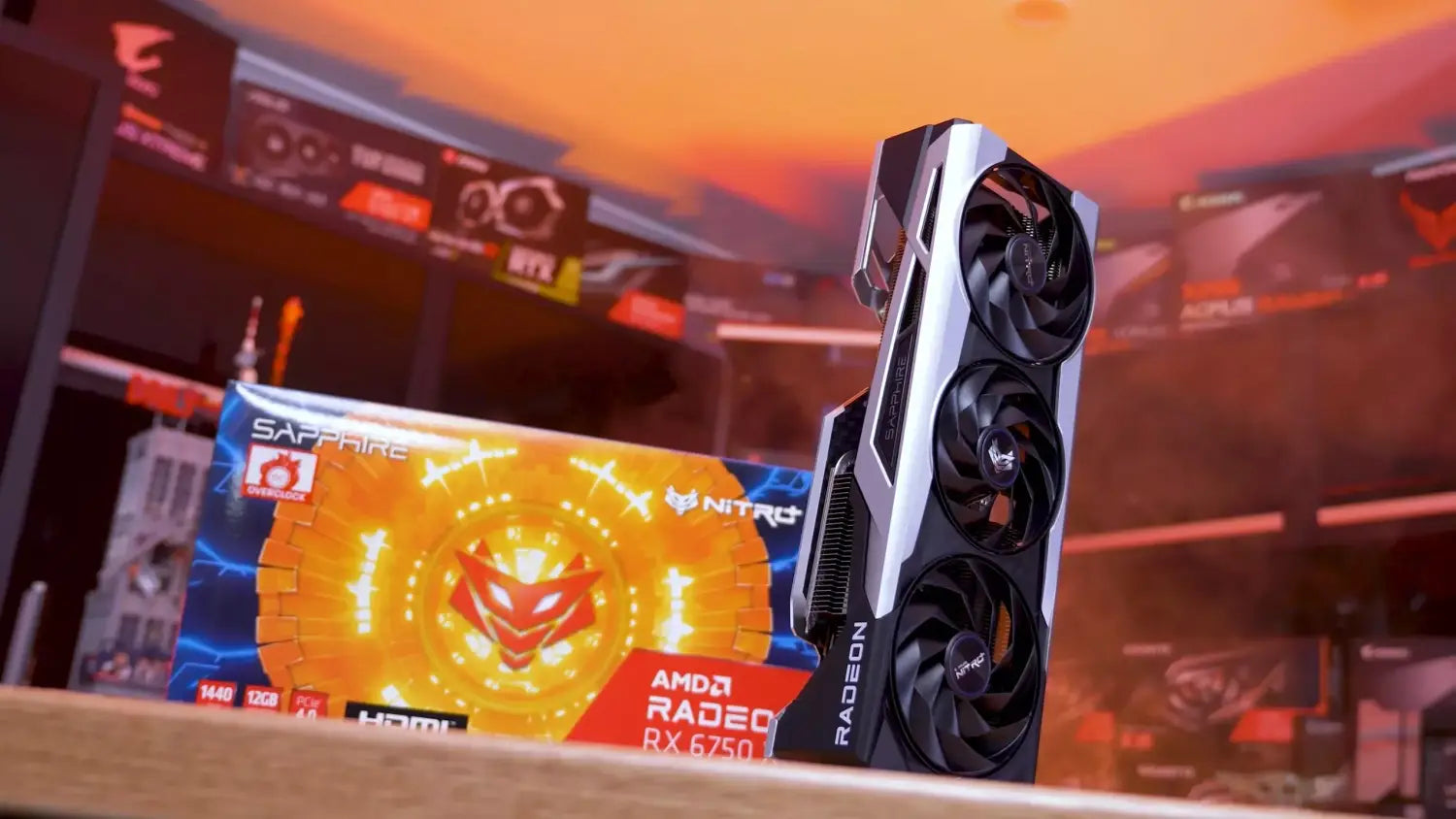
In the $300 to $400 range, prices have remained stable, though the Radeon 6750 XThas decreased to $330, providing good value in this bracket. The RX 6800 remains at $430, making it a preferable choice over the RX 7700 XT, considering its similar performance and efficiency, slightly lower cost, and an additional 4GB of VRAM.
The Radeon RX 6800 XT's value has also increased, now priced at $490, likely an effort to reduce inventory following the 7800 XT's debut.
Used GPU Pricing
| MSRP | Newegg Lowest Price Sept | eBay Used Price Aug | eBay Used Price Sept | Used Price Hike Aug to Sept | Discount Used vs New | |
|---|---|---|---|---|---|---|
| GeForce RTX 3090 Ti | $2,000 | No stock | $906 | $978 | 8% | |
| GeForce RTX 3090 | $1,500 | No stock | $719 | $713 | -1% | |
| GeForce RTX 3080 Ti | $1,200 | No stock | $587 | $583 | -1% | |
| GeForce RTX 3080 12GB | n/a | No stock | $493 | $429 | -13% | |
| GeForce RTX 3080 10GB | $700 | No stock | $409 | $409 | 0% | |
| GeForce RTX 3070 Ti | $600 | $450 | $342 | $349 | 2% | -22% |
| GeForce RTX 3070 | $500 | $370 | $295 | $285 | -4% | -23% |
| GeForce RTX 3060 Ti | $400 | $340 | $250 | $245 | -2% | -28% |
| GeForce RTX 3060 | $330 | $290 | $218 | $214 | -2% | -26% |
| GeForce RTX 3050 | $250 | $225 | $163 | $156 | -4% | -31% |
| Average | -2% | -26% |
| MSRP | Newegg Lowest Price Sept | eBay Used Price Aug | eBay Used Price Sept | Used Price Hike Aug to Sept | Discount Used vs New | |
|---|---|---|---|---|---|---|
| Radeon 6950 XT | $1,100 | $640 | $544 | $538 | -1% | -16% |
| Radeon 6900 XT | $1,000 | No stock | $497 | $497 | 0% | n/a |
| Radeon 6800 XT | $650 | $490 | $431 | $440 | 2% | -10% |
| Radeon 6800 | $580 | $430 | $357 | $351 | -2% | -18% |
| Radeon 6750 XT | $550 | $330 | $303 | $301 | -1% | -9% |
| Radeon 6700 XT | $480 | $320 | $262 | $270 | 3% | -16% |
| Radeon 6650 XT | $400 | $235 | $197 | $188 | -5% | -20% |
| Radeon 6600 XT | $380 | $270 | $167 | $164 | -2% | -39% |
| Radeon 6600 | $330 | $200 | $142 | $141 | -1% | -30% |
| Radeon 6500 XT | $200 | $140 | $86 | $82 | -4% | -41% |
| Radeon 6400 | $160 | $135 | $103 | $112 | n/a | -17% |
| Average | -1% | -22% |
The used market does not present anything noteworthy this month, so we'll briefly address it. There haven't been significant shifts from August, and the introduction of new Radeon GPUs hasn't had a profound impact thus far. Prices are stable, which is positive, and there's a growing supply of Ampere models as consumers upgrade. Overall, if you were hoping for price changes in the used market this month, there haven't been any notable fluctuations.
Wrap Up
And that's the current state of the graphics card market. We are not suddenly in a favorable position for GPU prices, however an uptick in competition from new Radeon products has led to a marginally improved situation compared to previous months. It's clear that all three vendors are closely monitoring the situation and are ready to make changes if their graphics card isn't favorably positioned – though the adjustments aren't as significant as we'd prefer.
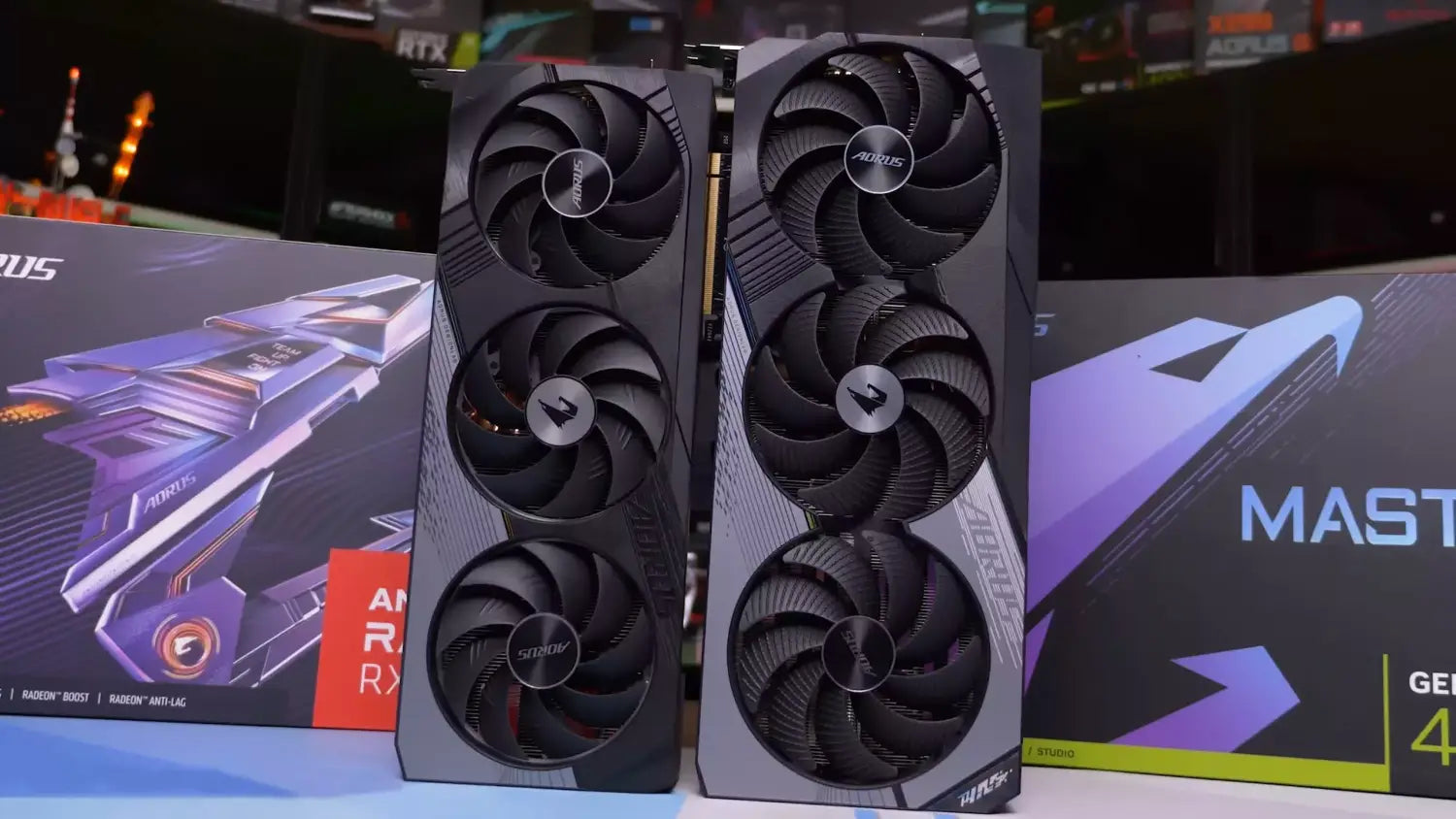
For those buying a new graphics card, the top of the market has been pretty flat for the last six months. We haven't noticed major adjustments for cards in the $800 tier and above. So, for those interested in models like the GeForce RTX 4070 Ti, Radeon RX 7900 XTX, or GeForce RTX 4090, the market seems stable. If you're hesitant about buying immediately, we suggest keeping an eye out for flash sales as we approach the holiday season.
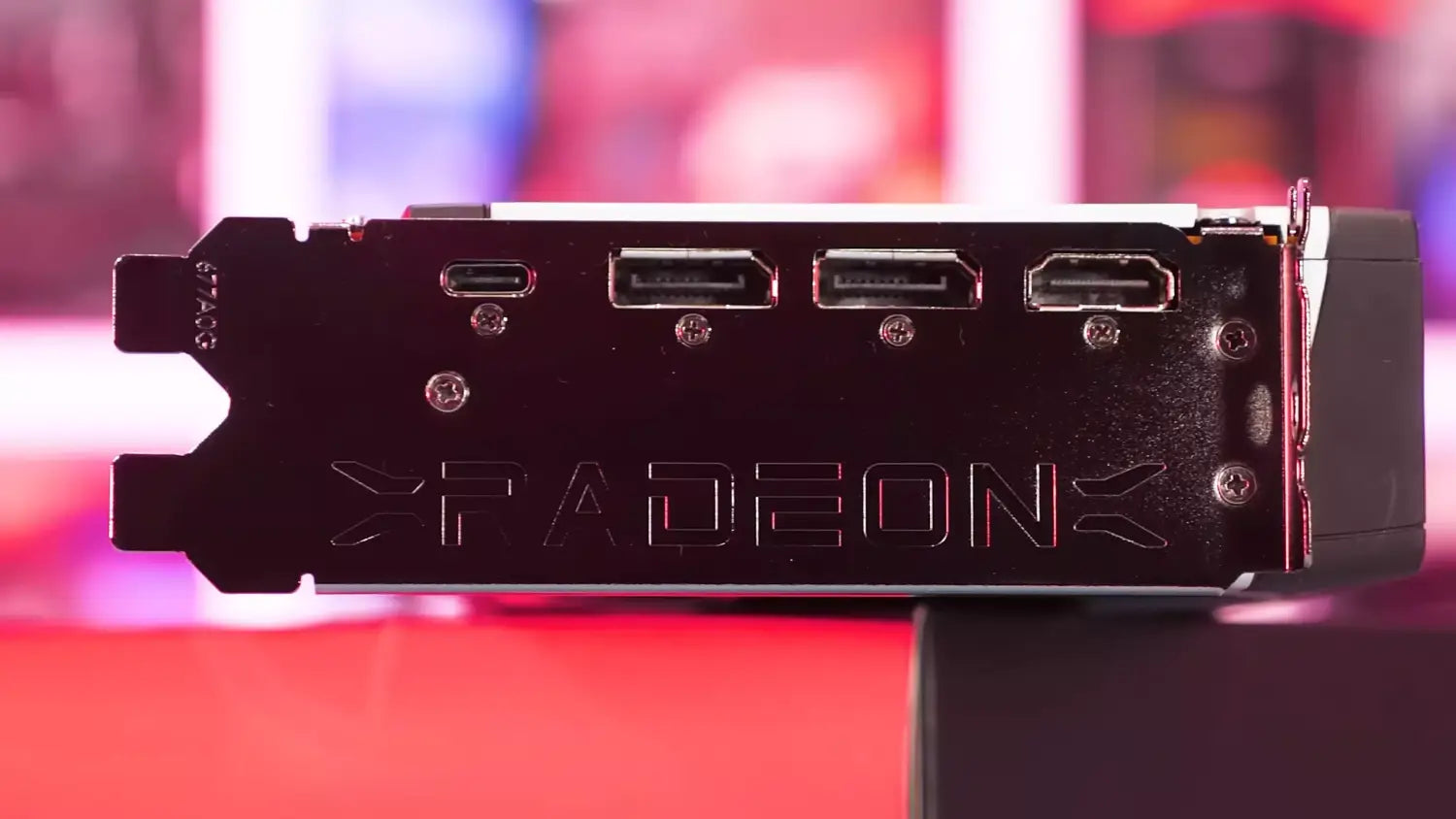
The $500 tier has experienced the most fluctuation, primarily due to the launch of the Radeon RX 7800 XT and 7700 XT. The introduction of these new cards, coupled with generally slow sales, led Nvidia to reduce the price of the RTX 4070 to $550 and the RTX 4060 Ti 16GB to $450, in a move that's not official but certainly appears to be.
The choice between the Radeon 7800 XT and GeForce RTX 4070 has become more challenging, as price cuts have impacted the perceived value of AMD's latest GPU. That's the beauty of competition. Right now you could certainly make a case to go for either team around this price.
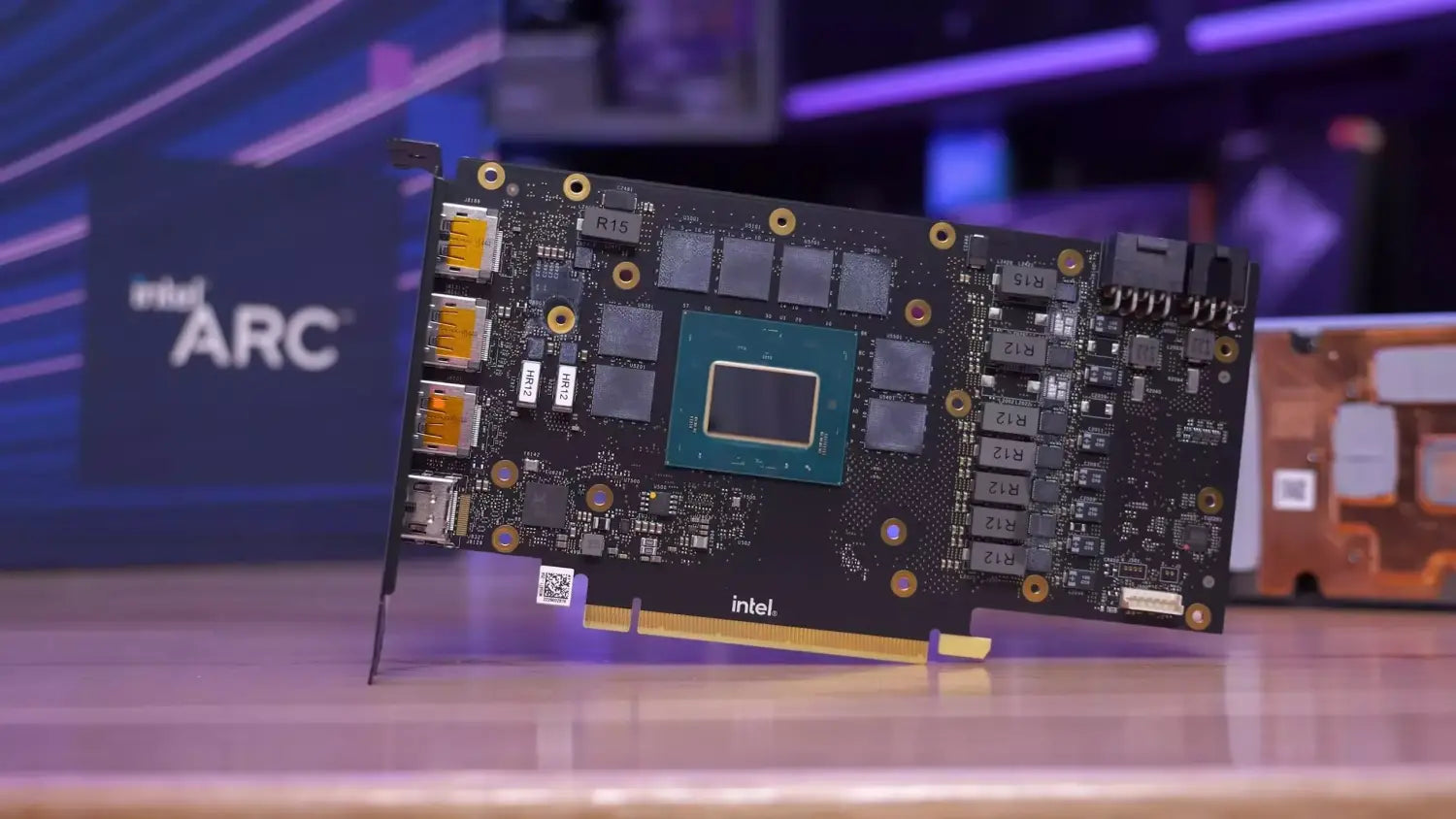
For those seeking options at or below $400, it's typically more prudent to invest in a previous-gen GPU, especially a Radeon model which continue to offer excellent value. We'd recommend the Radeon RX 6800 at around $430, the Radeon 6750 XT as a standout option at $330, and the Radeon RX 6600 as a solid choice at $200. Justifying the RTX 4060, even slightly below the MSRP, is challenging. Meanwhile, Intel's Arc GPUs have shown significant improvement, especially for those interested in more affordable models like the A750.






